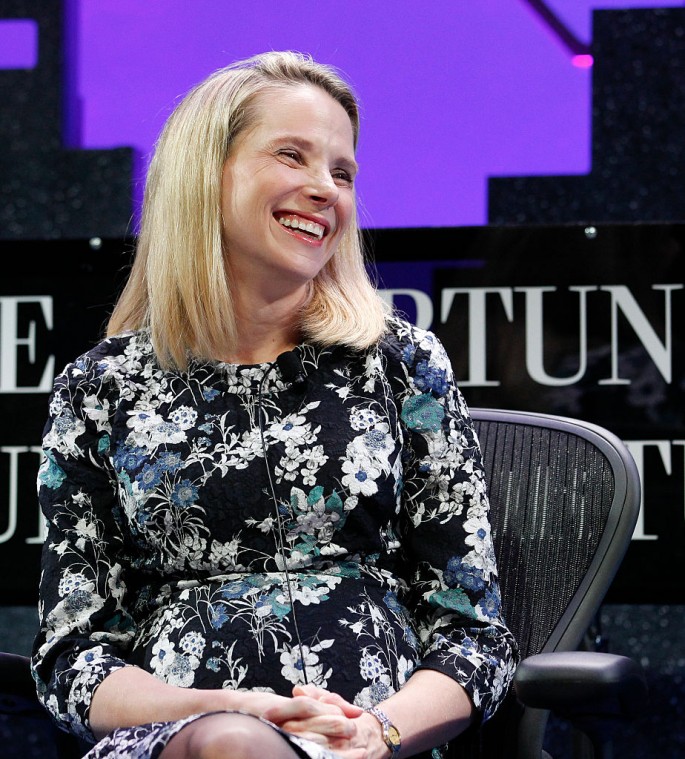Yahoo CEO Marissa Mayer tweeted on Thursday the birth of two daughters. She wrote, "Zack and I are excited to announce that our identical twin girls were born early this morning. Our whole family is doing great!"
Zack refers to her investor husband Zachary Bogue. The twins are their second and third children. The couple has a son, Macallister, who was born in 2012 a few months after she moved from Google to Yahoo.
She will likely go on maternity leave for three weeks, two after the childbirth and one more week as part of the Christmas holidays. Yahoo has a generous maternity leave package of up to 16 weeks of paid leave.
She is the second top tech executive to have welcomed a child before the end of 2015. A few days ago, Facebook CEO Mark Zuckerberg announced the birth of his and wife Priscilla Chan's daughter, Maxima.
He is taking a two-month paternity leave even if Facebook has a maximum of four months paternity leave. Zuckerberg also announced after his daughter's birth that he would donate 99 percent of his Facebook shares to charity, estimated at $45 billion.
The question now that many would likely ask if Mayer, who earned $42 million in 2014, would also donate her wealth to charity? Or is she saving it amid rumors that her job is at risk because she has failed to turn around Yahoo after three years as CEO.
In mid-September, New York University marketing professor Scott Galloway said that Mayer's twin pregnancy saved her from being fired. Now that the twins are out of her tummy, would her head be on the chopping block?
She was criticized in 2012 for taking a very short maternity leave when she gave birth to her first born. Her three-week maternity leave now makes sense given her role as CEO, says Barbara Yastine, co-CEO of Lebenthal Holdings.
Like Mayer, Yastine has twin girls and also went back to work soon after the birth. She explains, "When you want to do something big and different, you find a way to do it, and there's no such thing as balance - you're always juggling," quotes Bloomberg.



























